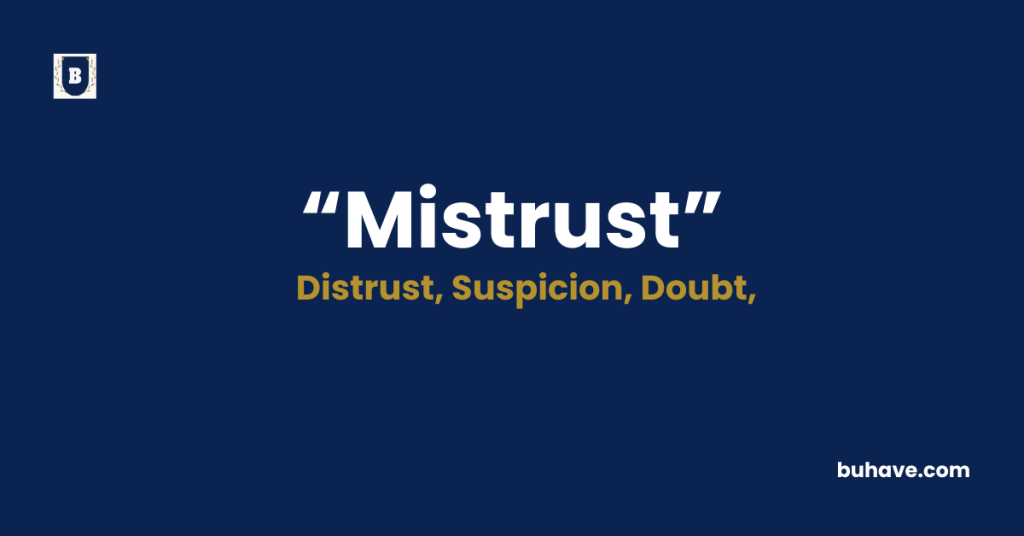The word ‘Mistrust’ (Noun) refers to a lack of confidence in someone or something, often involving suspicion or doubt about honesty, reliability, or truth. In this guide, you’ll learn the full definition, synonyms, antonyms, etymology, and real-life examples of how to use ‘Mistrust’ correctly in sentences.
Mistrust Explained in Depth
A complete and detailed guide to the word ‘Mistrust’ including meaning, definition, examples, etymology, synonyms, and antonyms.
Meanings of Mistrust
Mistrust means a feeling or belief that someone or something cannot be relied upon. It involves doubt, suspicion, or fear that someone may not be honest, safe, or well-intentioned. Mistrust can arise in personal relationships, social situations, or institutions.
Definition
Mistrust is both a noun and a verb. As a noun, it refers to the lack of trust or confidence in someone or something. As a verb, it means to regard someone with suspicion or doubt, especially about their truthfulness or intentions.
Etymology
The word “mistrust” is formed from the prefix mis- (meaning “wrong” or “bad”) combined with the word trust. It first appeared in Middle English and has since been used to describe a feeling of suspicion or lack of belief in others’ reliability or honesty.
Example Sentences
- Her past experiences led to a deep mistrust of authority figures.
- He mistrusts anyone who avoids direct answers.
- There was an air of mistrust between the two business partners.
Mistrust Synonyms
- Distrust
- Skepticism
- Suspicion
- Doubt
- Wariness
- Disbelief
- Cynicism
- Apprehension
- Uncertainty
- Questioning
Mistrust Antonyms
FAQs about Mistrust
Here are some frequently asked questions (FAQs) about the word “Mistrust”
- What does “mistrust” actually mean?
“Mistrust” refers to the lack of confidence or belief in someone’s honesty, reliability, or motives. - Is mistrust the same as distrust?
They are often used interchangeably, but “mistrust” can imply a more emotional or instinctual suspicion, while “distrust” is often more deliberate or reasoned. - What causes mistrust?
Mistrust can develop from past betrayals, broken promises, lack of transparency, or negative experiences with individuals or systems. - Is mistrust always harmful?
Not always. Mistrust can be protective, helping people stay cautious in unfamiliar or potentially risky situations.

















